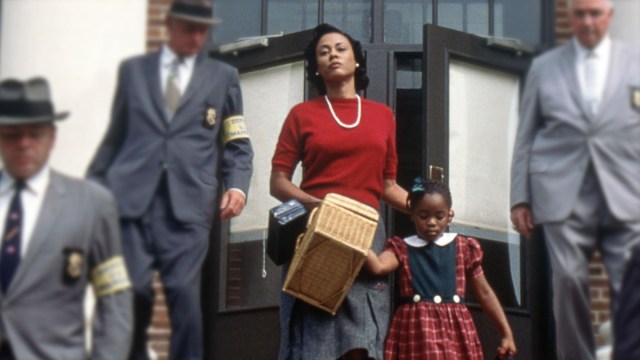A parent complaint caused a Florida school to remove Disney’s Ruby Bridges movie from Black History Month curriculums
In case you’ve missed this news, Florida keeps passing laws that give parents more and more control over what their kids see and learn about at school. These laws have already had absolutely apocalyptic effects—like when teachers removed unapproved books from their classrooms prior to the start of the current school year under fear of felony charges. Now, another consequence: because of a single parent’s complaint, elementary schoolers are banned from viewing Disney’s Ruby Bridges, which tells the true story of the 6-year-old little girl who integrated schools in New Orleans in the 1960s.
Ruby Bridges, which was released in 1998, has been part of Pinellas County’s Black History Month curriculum for years. But now it’s been removed, thanks to a complaint and formal challenge from parent Emily Conklin, who wrote that scenes containing racial slurs and depictions of white people threatening Ruby could result in students thinking that white people hate Black people.
The school district says the movie’s removal is currently temporary, pending an official review. But the problem with these types of content reviews in Florida is that they have no timeline—recently, Toni Morrison’s book The Bluest Eye was banned for months due to a parent’s complaint that was ultimately overturned.
The decision to ban Ruby Bridges has drawn widespread criticism from inside and outside of Florida.
“Many from historically marginalized communities are asking whether this so-called integrated education system in Pinellas County can even serve the diverse community fairly and equitably,” said Ric Davis, president of Concerned Organization for Quality Education for Black Students.
Lawmakers in Florida have said that they don’t want anything taught about race in the state’s schools—including books, movies, or lessons—to make students uncomfortable, but that they want the facts represented honestly. Ruby Bridges is a historically accurate retelling of a true part of history—including the racial slurs and violence at the hands of anti-integration white parents in 1960s New Orleans.
“Think about it. A 6-year-old girl (Ruby Bridges) can go to school every day with armed guards, but second graders can’t learn about it?” Davis said. “It doesn’t make any sense.”
It doesn’t make any sense, but it’s the state of education in Florida right now. And with more bills moving through the legislature—including one that would ban girls from talking about their periods at school before sixth grade—things aren’t likely to improve any time soon.











